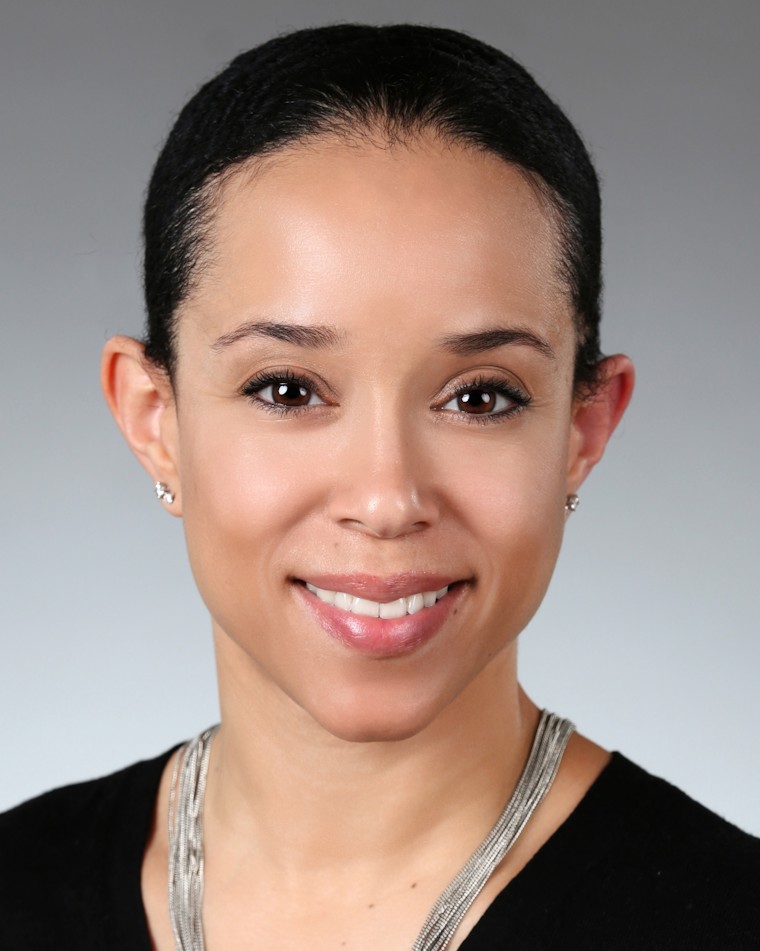Honoring Excellence: Q and A with Aisha Barber, MD, MEd of Children’s National Hospital
This interview is one in a series of interviews with recipients of the 2022 ACGME Awards. The awardees join an outstanding group of previous honorees whose work and contributions to graduate medical education (GME) represent the best in the field. They will be honored at the ACGME Annual Educational Conference, taking place virtually March 30-April 1, 2022.
Children’s National Hospital in Washington, DC is one of four honorees receiving the ACGME’s Barbara Ross-Lee, DO Diversity, Equity, and Inclusion Award in 2022. Dr. Aisha Barber, who serves as program director of the pediatric residency program and a member of the Diversity, Equity, and Inclusion (DEI) Steering Committee there answered the ACGME’s questions about the outstanding measures this program has taken to foster DEI.
ACGME: Can you tell us a little bit about your Sponsoring Institution and program?
Dr. Barber: Children's National Hospital is located in Washington, DC. It was established in 1870 and now is among the nation's top 10 children's hospitals. Children's National's goal is to transform pediatric medicine for all children. You will often hear employees share their desire to care for this community and region. Children's National is home to many training programs, including the pediatric residency program, which includes 120 residents. Our mission is to provide world-class education and innovative training experiences to pediatric residents in an environment that values each individual, encourages collaboration, and considers physician well-being, in order to achieve our vision of improving the well-being of children on a local, regional, national, and global scale through clinical care, education, advocacy, and research.
ACGME: Why is your institution so dedicated to the concepts of diversity, equity, and inclusion?
Barber: We appreciate that diversity in our institution and pediatric residency program are essential to achieving excellence in our medical education, research, and patient care missions. In addition, we recognize the imperative to diversify the face of academic pediatrics where many of the research, education, and policy agendas are made, and ensure that all pediatricians are able to apply concepts of health equity. In these ways we aim to contribute to the dismantling of structural inequities.
ACGME: What work/initiative are you specifically being recognized for?
Barber: We are being recognized for our work to increase diversity and enhance inclusion and equity within our pediatric residency program.
ACGME: Can you share what that work looks like?
Barber: An important entry point to our diversity and inclusion efforts is a visiting clerkship program for senior medical students called Advancing Diversity in Academic Pediatrics (ADAP, formerly the Minority Senior Scholarship Program). Created in 2015, ADAP’s novelty lies in its focus on student engagement and exposure to academic careers. It is an exemplar due to the potential for replicability and its proven success. ADAP is intentional about recruiting students from backgrounds underrepresented in medicine (UIM) to academic careers via:
- Immersion as a front-line provider in a quaternary care, free-standing children’s hospital;
- Facilitating a vision of themselves in academic careers;
- Providing robust mentoring and empowering them with strategies for managing mentor relationships; and,
- Supporting their voices as advocates for diversity, equity, and inclusion in academic medicine.
We also use a well-being framework to augment support, inclusion, and equity within our pediatric residency program. These efforts are extensive, including attention to physical and psychological safety through opt-out psychology for all pediatric residents; assessment of observations and experiences of bias and inequitable care on all core rotations to inform faculty development efforts; a professional development series centering the interests of UIM residents; and a mentoring lattice program for UIM residents, fellows, and junior and senior faculty members.
In 2020 we created the Building Equity Initiative (BEI), where our pediatric residency program challenged ourselves to be even more intentional about building a residency program with a culture of inclusivity in which residents are empowered to drive equitable outcomes for all children. The BEI’s mission is to:
- Transform our residency program through integration of an equity framework in all aspects of training, including education, research, advocacy, clinical care, and resident well-being;
- Train self-actualized future pediatric leaders equipped with antiracism knowledge, skills, and attitudes to dismantle systemic inequities;
- Advocate for inclusive policies that foster diversity, representation, and cultural safety; and,
- Promote community partnerships to ensure social accountability.
Our working groups are resident-led and faculty member supported. They have crafted specific aims and are in the midst of projects focused on recruitment and representation, well-being and inclusion, antiracism education, antiracism in research, community partnerships and social accountability of our residency program, and advocacy for under-resourced patients.
Thanks to generous philanthropy, we have been able to expand these efforts as we seek to: 1) better understand the core health equity competencies for pediatricians to best serve our children, and 2) identify the responsibilities and best practices of programs and Sponsoring Institutions with regard to equity in GME.
ACGME: How has this work helped make your institution more diverse and/or inclusive?
Barber: ADAP has hosted over 80 students to date. Twenty-five percent of ADAP students subsequently matched into our residency program. This parallels our residency program’s increased cohort of incoming UIM residents from five percent to 49 percent over the same timeframe. Many ADAP students are currently residents, fellows, and even faculty members at Children's National. However, diversity is more than a number. Inclusion, equity, well-being, and representation are essential elements. Students note that participation in the program had a positive impact on their confidence to pursue an academic career and feeling of belonging in this environment. We have anecdotally found similar outcomes in our residency program.
ACGME: How could others use your work as a model to become more diverse and inclusive? What advice would you give to GME leaders who are looking to do just that, but aren’t sure how to start?
Barber: My advice would be to focus both on the individual and on the systemic levels. Supporting each individual resident is important. However, systemically embedding these efforts, taking opportunities to create positions with salary support, combing your policies for inequities, and securing funding, for example, are essential to the success and sustainability of efforts.
ACGME: Is there anything you would like to say that we haven’t already asked about?
Barber: We have been inspired by the wonderful and innovative work being done nationwide in the area of diversity, equity, inclusion, and justice. We are grateful and humbled by the honor of this award.
Learn more about the ACGME’s Barbara Ross-Lee, DO Diversity, Equity, and Inclusion Award and nominate a deserving individual for the 2023 Award – nominations are due by April 6, 2022.






